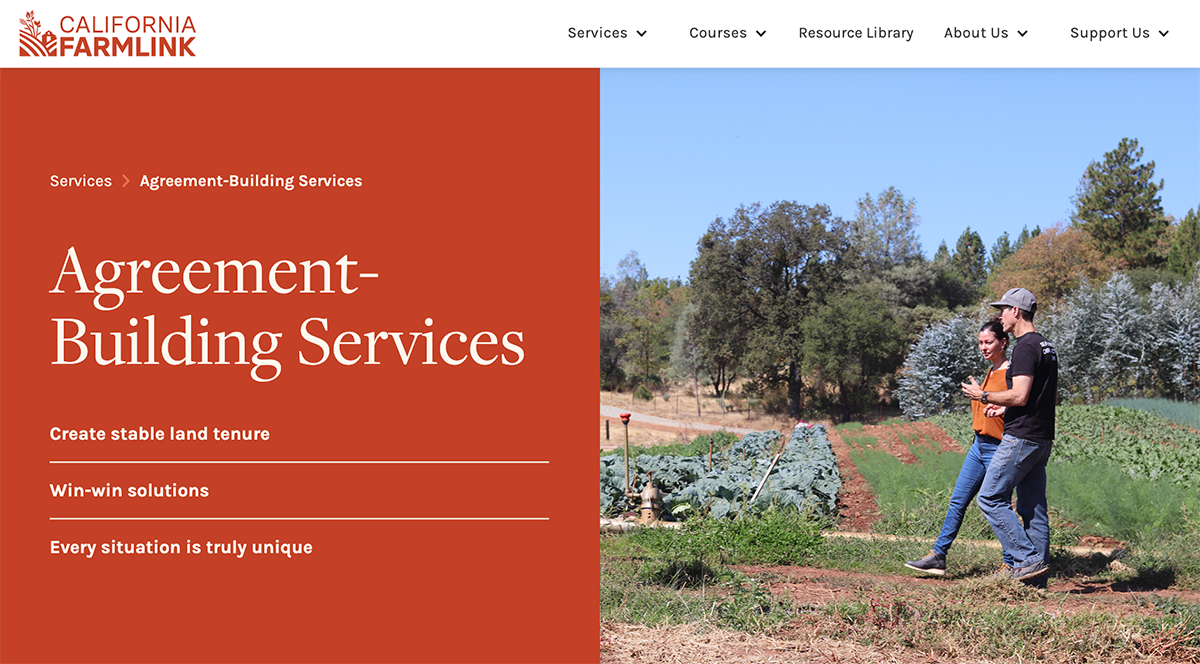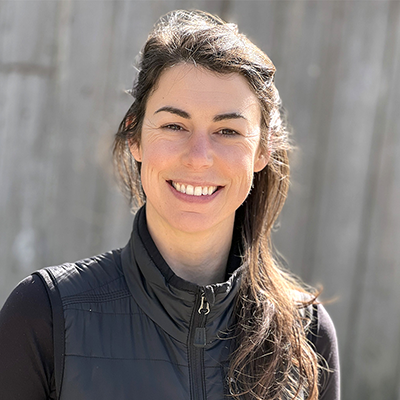What is the best way to develop agricultural contracts? Our land and livestock team tends to value simplicity and clarity; as Mark Biaggi would say, “Make it so simple the lawyers can’t break it.”
Navigating Grazing Agreements with California FarmLink

10/31/2023
By: Jessica Hartzell + Margaret Rossano, California FarmLink

 What is the best way to develop agricultural contracts? Our land and livestock team tends to value simplicity and clarity; as our ranch manager Mark Biaggi would say, “Make it so simple the lawyers can’t break it.” At the same time, there are others who are more risk-averse and ready to bet that a thorough agreement can come in handy. That’s why we gladly took California FarmLink up on an opportunity to offer feedback on their grazing contract template.
What is the best way to develop agricultural contracts? Our land and livestock team tends to value simplicity and clarity; as our ranch manager Mark Biaggi would say, “Make it so simple the lawyers can’t break it.” At the same time, there are others who are more risk-averse and ready to bet that a thorough agreement can come in handy. That’s why we gladly took California FarmLink up on an opportunity to offer feedback on their grazing contract template.
FarmLink’s Equity and Conservation on Working Lands (ECWL) division offers a suite of agreement-building services, and can support farmers, ranchers, and landholders with developing equitable agreements such as agricultural leases and grazing contracts, as well as agreements related to the sale of a business. TomKat and FarmLink previously collaborated to produce a Guide to Regenerative Grazing Leases: Opportunities for Resilience, and FarmLink’s ECWL team can help parties develop a regenerative grazing lease agreement. You can find the Guide to Regenerative Grazing Leases and other related resources in the Landholder Toolshed housed online in FarmLink’s Resource Library.
FarmLink knows that each situation is unique, and recognizes the specific challenges and considerations that arise when negotiating a grazing contract. For example, in reviewing the basic draft contract, TomKat’s Small Ruminant Coordinator Stephanie Pittman highlighted issues such as assignment of a point person to communicate about day-to-day matters; permission to carry and use a firearm to euthanize livestock, if needed; and requirements for landholder to give the grazer notice about spraying or fertigation that could might impact the animals.
The contract development process provides a space for dialogue around these sorts of questions and inclusion of language in the contract to address them. Over the years, FarmLink’s ECWL division has worked with attorneys to develop base language and an array of clauses that can be modified to suit your specific needs. The ECWL team can walk you through the process of developing a contract, and can also review draft contracts and provide feedback.
ECWL team members are multi-partial advocates, not attorneys, and are available to support both landholder and graziers/landseekers in building an equitable agreement that both parties understand and that reflects their mutual expectations. If you are interested in working with FarmLink on a grazing contract or other agreement or would like further information, you can submit an agreement-building services inquiry form or contact the ECWL team at land@cafarmlink.org.